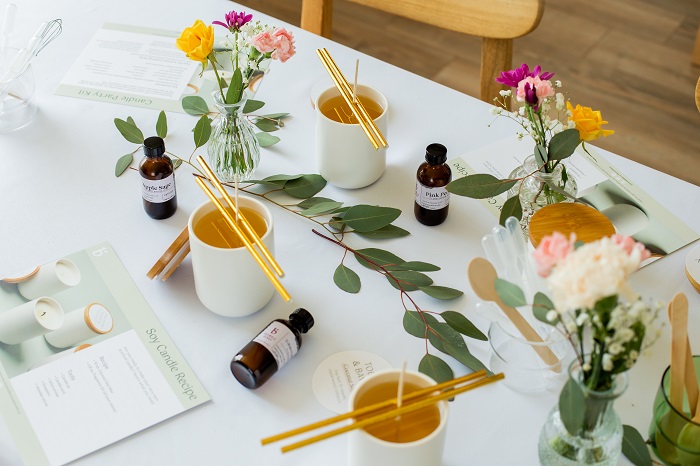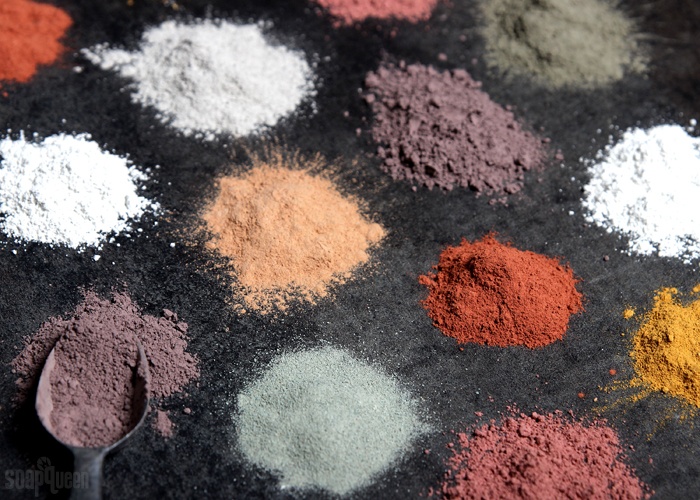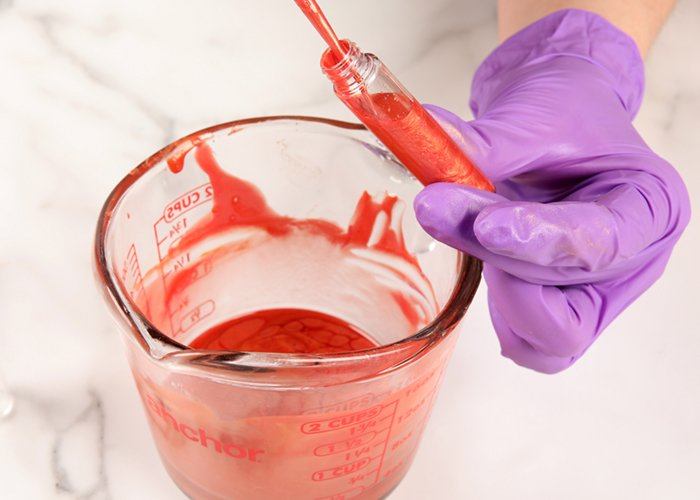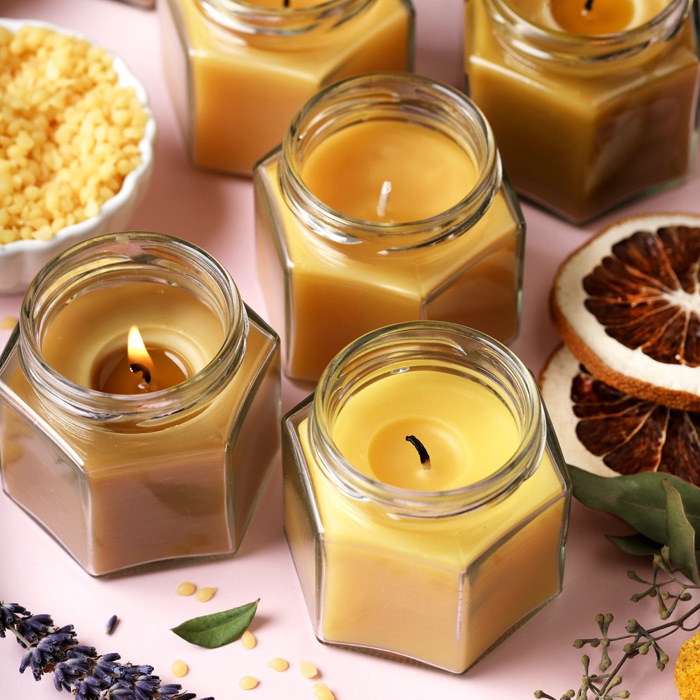What You Need to Know About Parabens and Phthalates
Learn about paraben and phthalate-free personal products and the controversy surrounding these substances. This article will provide answers to your questions.
Have you seen products marked paraben or phthalate free and been curious about them? If you want to know more about these substances and what all the controversy is, this article will help answer some of those questions.
What are parabens and phthalates?
Parabens
Parabens are not one single thing, which is probably easy to tell because they generally are discussed in the plural. They’re a group of related chemicals that have been used as preservatives since the 1920s.
When products contain natural ingredients that can biodegrade, they are vulnerable to spoilage by molds and bacteria. Adding preservatives like parabens is a way to extend the shelf life of these products and to keep consumers safe from pathogens.
While some parabens exist in nature and are found naturally in a number of foods like blueberries, carrots, fennel and wheat, all parabens used commercially are synthetically produced. Parabens are used in a wide-ranging variety of industries from food, to medical devices, to cosmetics, to pharmaceuticals and dental products.
Phthalates
Phthalates are chemicals known as plasticizers. They help scent linger longer in products with fragrance, and they’re also used as a kind of binder in cosmetic and skin care products. They can be found in everything from eyelash glue to perfume to nail polish. They’re also used in automotive and medical manufacturing to strengthen plastics.
These chemical compounds are synthetic.
Why are they so controversial?
The paraben concern started
back in 2010 when breast cancer tumors were found to have accumulated parabens in
them. There was no causal link found at that time, and the study didn’t
compare that data with the amount of parabens in normal human tissues. In addition,
parabens are not only used across several products and industries, but they also
appear naturally in our food. The study made no effort to determine the source of
the parabens found in cancer tissue.
This is obviously not a
clear-cut situation, so we turned to the experts for more
information.
The American Cancer Society has this to say:
“Parabens have been raised as a possible health concern because lab studies have shown that they have weak estrogen-like properties. Estrogen is a female hormone known to cause breast cells (both normal and cancer cells) to grow. And some conditions that increase the body's exposure to estrogen (like not having children, late menopause, obesity, etc.) have been linked to an increased risk of breast cancer.
While some forms of parabens have been found in the urine of up to 99% of people in the US, so far, studies in people have not shown any direct link between parabens and any health problems, including breast cancer. There are also many other compounds in the environment that mimic naturally produced estrogen.
Although there are no clear health risks from parabens in food, drugs, cosmetics, and skin care products, people concerned about being exposed to parabens might choose to avoid products containing them. Consumer products containing parabens are required to list them as ingredients. Most parabens have names containing the word “paraben,” making them easy to find.”
Source: The American Cancer Society
Per the National Cancer institute:
“It has been reported that parabens are found in breast tumors, but there is no evidence that they cause breast cancer. Although parabens are used in many cosmetic, food, and pharmaceutical products, most deodorants and antiperspirants in the United States do not currently contain parabens. The National Library of Medicine’s Household Products Database has information about the ingredients used in most major brands of deodorants and antiperspirants.”
Source: The National Cancer institute
The FDA has a page on parabens, and they state that while they continue to review studies on the safety of parabens, they do not have any information that indicates that parabens as they are used in cosmetics have an effect on human health.
The FDA - Parabens in Cosmetics
Phthalates have been linked to health issues in animals, from being an endocrine disruptor to potentially affecting reproductive organs to having links to potential common cancers. Many people choose to avoid using plastics when possible because phthalates are commonly found in plastics. For the most part, they have been phased out of personal care as a separate additive (in the past, phthalates used to be used in fragrance oils as a solvent and in nail polish bases). Bramble Berry fragrance oils are phthalate-free.
Research has not confirmed health impacts to humans by low levels of phthalate exposure. The effect of phthalates on human health is still being studied. At this time, the FDA has no evidence that phthalates as used in cosmetic products pose a health risk to humans.
You can find more information on phthalates from the FDA here: Phthalates in Cosmetics.
The FDA’s monitoring of phthalate levels in cosmetic and personal care products has found that phthalate use in these products has decreased considerably. In fact, these days, they are typically not present except in minute quantities, as a byproduct from plastic tubing used to fill lotion, shampoo, conditioner bottles or used in distilling essential oils.
As of May 19th, 2022, the FDA has revoked authorization for food contact use (such as use in plastic packaging that comes into direct contact with food) of 23 phthalates. They are continuing to monitor studies pertaining to phthalates and human health.
A fact sheet on the use of phthalates in food packaging can be found here: FDA: Phthalates in Food Packaging.
Because of the wide range of conclusions drawn from some of these studies and surrounding media stories, some consumers worry that parabens and phthalates may negatively impact their health and the health of their family members.
Still other people worry about these chemicals’ effects on plants and animals in our environment, especially those in our oceans and waterways where aquatic animals may ingest them, thus affecting the entire food chain (including the humans that may eat those animals) .
In the European Union, the use of certain parabens in cosmetics and personal care products is restricted. The EU has banned the use of the following parabens in cosmetics: Isopropylparaben, Isobutylparaben, Phenylparaben, Benzylparaben. The EU and the US Based Cosmetic Ingredient Review has also established a maximum limit for the amount of methylparaben and propylparaben that can be used in cosmetics.
Europe has also banned some uses of phthalates, especially in children’s products. Some states in the US have enacted similar bans. At this time, the US government doesn’t consider phthalates to be a significant health risk.
FDA is clear that there is not conclusive evidence that parabens, as they are currently used in cosmetic products, are harmful to human health. As with many health controversies, more studies are needed to ascertain whether or not these chemicals present a significant risk to human health.
Bramble Berry’s philosophy on parabens and phthalates
We understand that some consumers have concerns about these products, and we also understand that they are useful when used in the correct amounts (after all, no one wants a moldy product!). Most importantly, we want to support our customers’ right to choose.
Our line of fragrance oils is phthalate free, and we offer preservatives that contain parabens, like Germaben and Phenonip, and some that don’t, like Optiphen and Geogard 221. This gives you the chance to decide what preservative is best for you and your products.
Fragrance and Essential Oils Tags:






